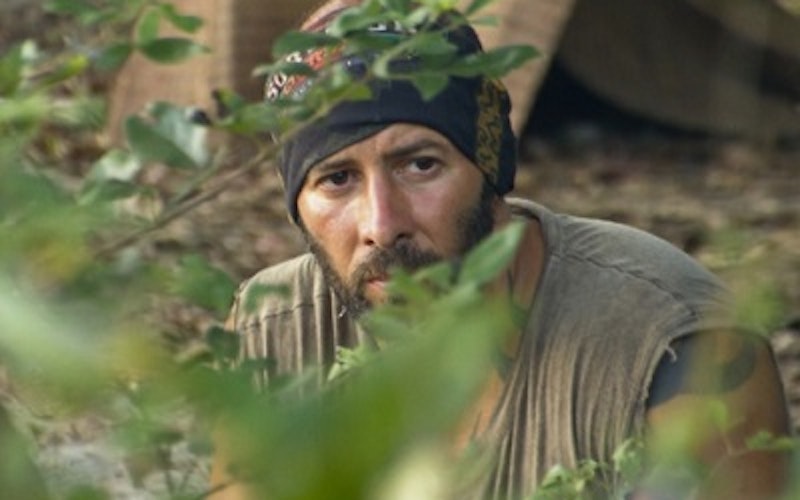
TV
Bearing false witness on Survivor: Cagayan
If you want to be on Survivor, practice fire-making, spearfishing and silencing your conscience, because one of the essential tools of the game is the bald-faced lie.
On last week’s Survivor: Cagayan, ex-policeman Tony found himself struggling to shore up his four-person alliance. He faced a simple math problem: only three people would make it to the finale (airing tomorrow), so one person in his group would have to be culled. Naturally, as Survivor’s tropical Machiavellis have done from time immemorial, he took wavering alliance member Kass aside to swear on his wife and baby that she would be one of the final three. But “Chaos Kass,” as she calls herself, decided to expose Tony’s play. She marched back to camp and announced Tony’s vow to Woo, another alliance member. The message was clear: Tony has to swear this to everyone, and yet he can’t keep his promise to everyone, so no one is justified in trusting his word. Tony’s exasperated behavior in the scenes that followed - complaining about Kass breaking the unwritten rules, escalating his oath of loyalty to Woo by swearing on a half-dozen more family members - encapsulates an eternal Survivor verity: to play the game is to bear false witness.
But can that really be true? As explicated by Johan Huizinga in his classic book Homo Ludens, it is part of the definition of “play” that within the boundaries of a game, behaviors that are immoral in normal life become legitimate tactics. Tackle a guy on the street, it’s assault; tackle him while playing football, the crowd goes wild. Few Christians would argue that bluffing in poker counts as lying. In any number of games, deception is mandatory for any winning strategy. Survivor, though, lacks the boundaries that signal the difference between play and daily life. It’s 39 nonstop days, with no breaks or time-outs. If you’re breathing, you’re playing.
Survivor is a game, and the Ten Commandments are the wrong playbook.
Christian contestants have struggled with this fact ever since the first castaways invented the idea of an alliance. Many have declared their determination to play without bearing false witness, only to find that their tribe mates dismiss them for not playing at all by not making moves that necessarily involve deceit. Yet for most contestants, betrayal leaves deep scars that can’t be erased by invoking the nature of the game. It’s the fundamental, fascinating paradox of Survivor: you have to be untrustworthy to have a real shot at winning, but that shot winds up in the hands of people loath to reward a snake or hypocrite.
So it’s now a cliché for the Christian castaway, the one who wanted to witness to the world, to leave the island with her moral code intact, yet ridiculed for failing to understand the simplest thing about Survivor: it’s a game, and the Ten Commandments are the wrong playbook.
I’d love to see someone blaze a new trail in between “I’m abandoning my principles because that’s the game” and “It’s not worth winning without my principles.” Why not take a page from the Hebrew Bible’s trickster figures, such as Jacob, whose repeated ploys and deceptions are celebrated as cleverness, not condemned as sin? Wouldn’t it be refreshing to hear Luke 16:9 quoted into the confessional camera lens: “And I tell you, make friends for yourselves by means of dishonest wealth so that when it is gone, they may welcome you into the eternal dwellings”? This message, from the strange parable of the shrewd steward, seems to indicate that it’s never too late to turn your deceptions and faithlessness into the foundation of a supportive community.
In the end, the integrity to which viewers and fellow players always respond best is honesty with one’s self. Consider this a casting call for an aspiring virtue ethicist or Kierkegaardian existentialist to bunk with the Chaotic Evils next season.
Topics: TV, Culture At Large, Arts & Leisure, Theology & The Church, Faith